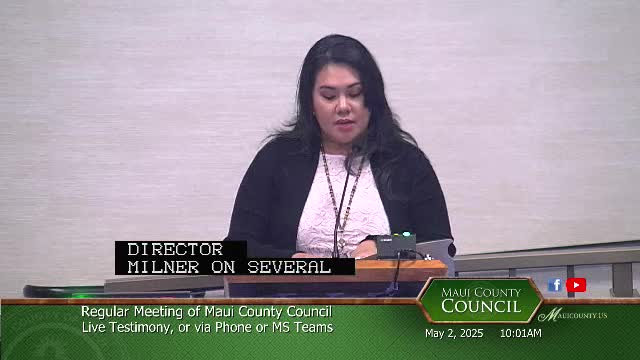Article not found
This article is no longer available. But don't worry—we've gathered other articles that discuss the same topic.
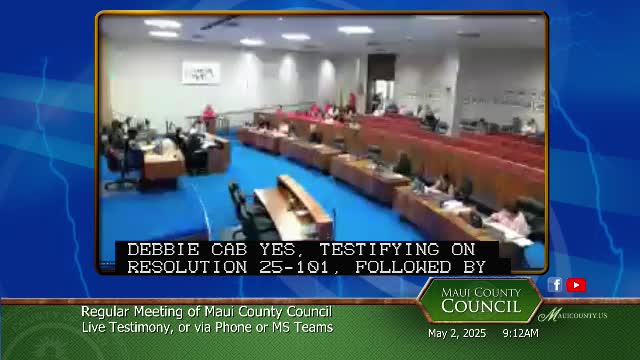
Council honors Maui Economic Opportunity on 60th anniversary; extends condolences for civic leader Jonathan Starr
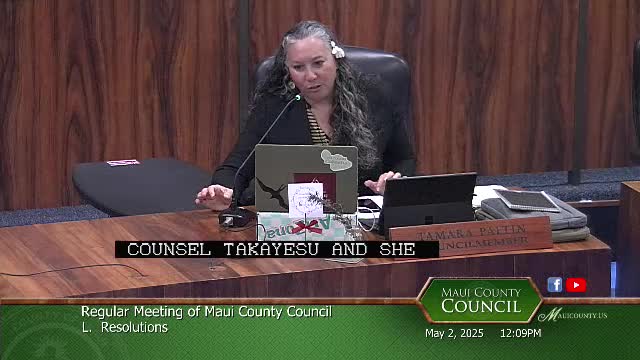
Council backs intent to acquire Molokai properties, signals up to $30M appropriation
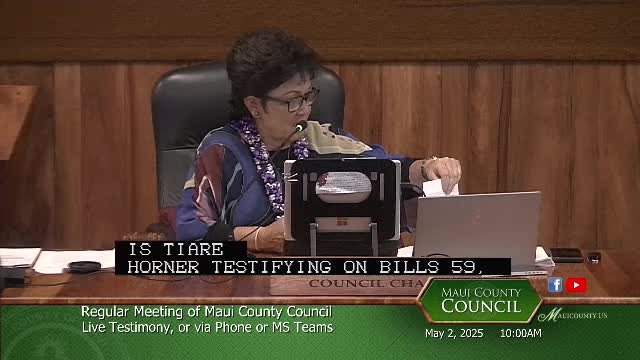
Council approves $500,000 recognition for Komohana Hale rebuild planning; housing timeline discussed
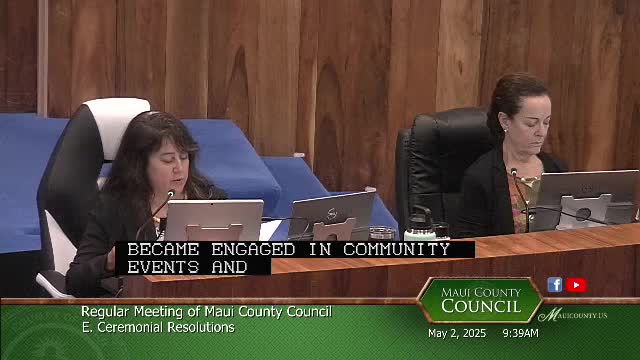
Maui Council opposes Young Brothers temporary rate increase and urges PUC to seek alternatives
